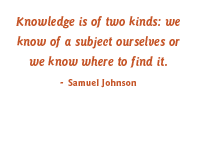| People |
| Philosophy |

 |
|
|
|
 |
<< GO BACK Beyond Eeyore: Building Accountability into Your Workplace
Download/Print: Eeyore is a sometimes loveable, always pessimistic donkey in A.A. Milne’s Winnie the Pooh stories. "There are those who will wish you good morning,” Eeyore says in typical fashion. “If it is a good morning, which I doubt." Eeyore’s name comes from the sound of the donkey’s signature bray, and his disposition is much like that noise—repetitive and annoying. Eeyore always assume the worst is going to happen, and wanders around in a constant state of negativity. The workplace can have its Eeyores—people who always see problems and weaknesses in an organization, rather than offering solutions and pointing out strengths. They often express themselves in questions, says John Miller in his book “The Question Behind the Question.” Asking different, directed questions back to these co-workers can, according to Miller, help them to become more positive contributors. What kinds of questions is a workplace Eeyore likely to ask? How about “Why is this happening to me?” or “When is management going to do things right?”, or everyone’s favorite (OK, it’s a statement and not a question), “This will never work.” Communicating in the form of a question can be a way to appear interested in workplace improvement while remaining uncommitted to being a part of any solution. Miller suggests that people who ask these types of questions are essentially saying “I am powerless. The world and the workplace are against me. Nothing can be done.” That is the message behind these types of questions. If complaining and negativity are expressions of powerlessness, is it possible to help people reverse this tendency? The answer is yes, according to Miller. We can help ourselves and others to become problem solvers by asking different questions. What kind of questions? First, when people are complaining and avoiding taking personal responsibility, ask them questions that start with “what”, or “how”, not “why”, “when”, or “who”. For example, when someone asks “Why is this happening to me?”, encourage that person to ask instead, “What can I do to improve this situation?” Another good idea is to get words like “them” and “they” out of the conversation. In other words, instead of asking “When are they going to do things right?” ask, “What can I do to understand how management sees things in our organization?” Finally, ask questions that focus on taking action and specific solutions rather than on vague generalizations. If you are tempted to say, “This will never work,” instead ask, “What can I do to make this work?” You will be seen as adding more value to your organization, and as being open to taking responsibility. Feeling powerless is no fun—not for the person who feels powerless, and not for the people to whom they express these types of “powerless” questions. There is a way out, though. By understanding the “question behind the question,”—the feelings that are behind these negative attitudes—and by asking questions that provide an opportunity for positive action, you can help the Eeyores of the workplace become part of the winning solutions. ______________________________________________________________
|
||
 |
 |
 |